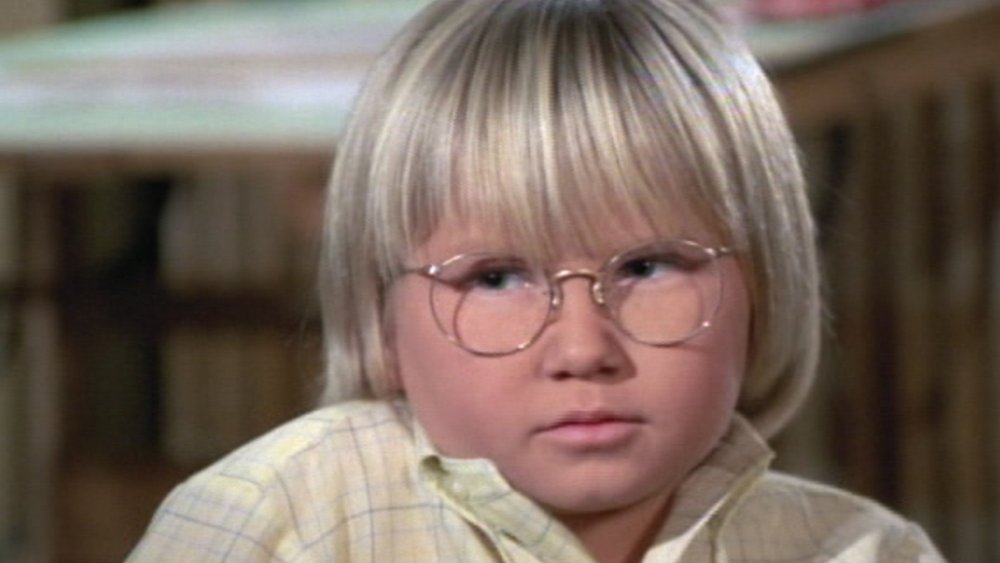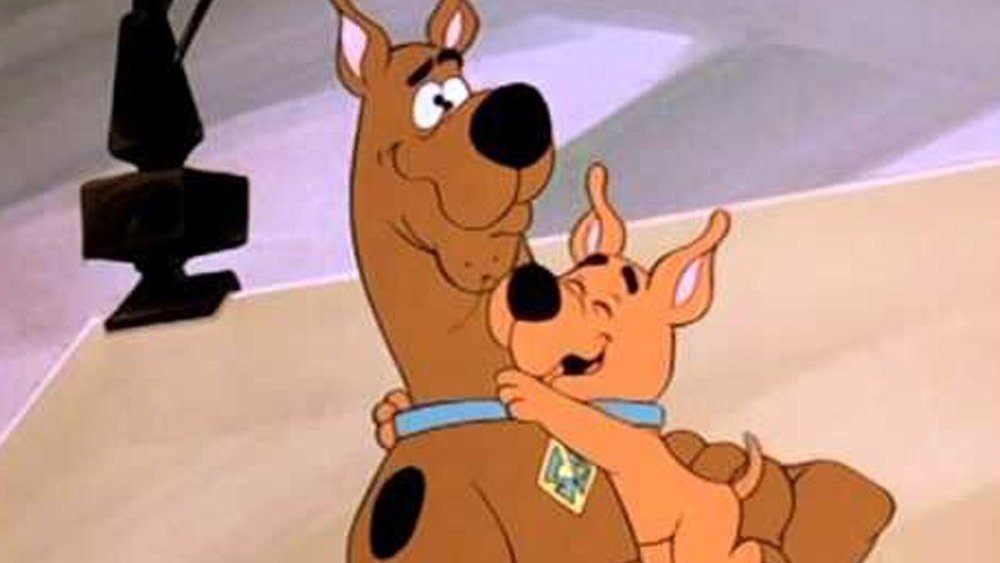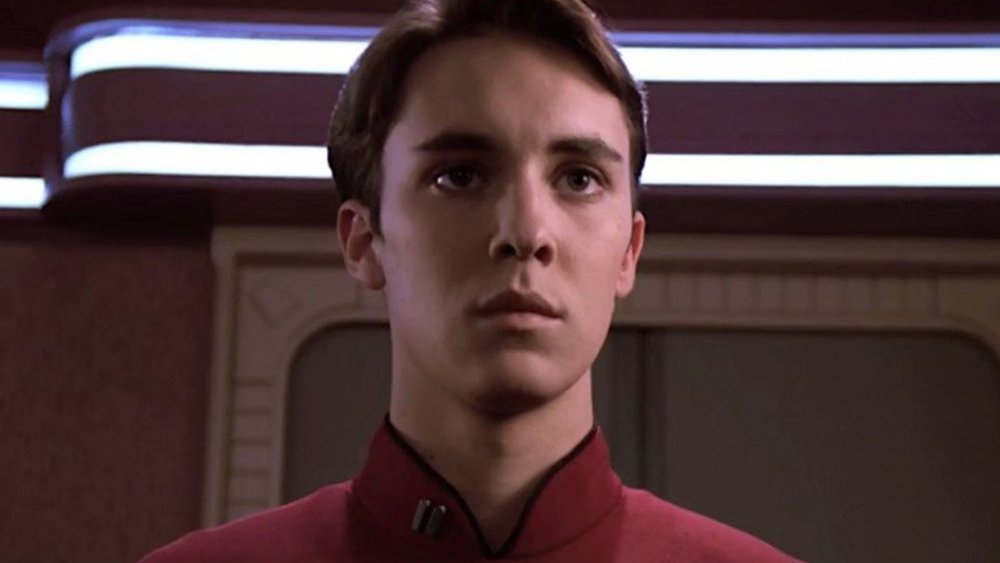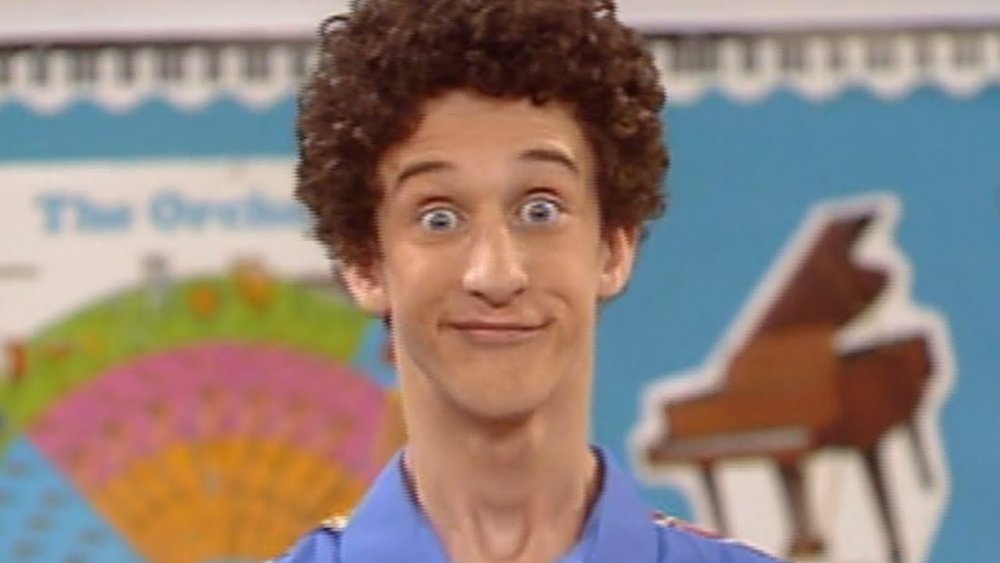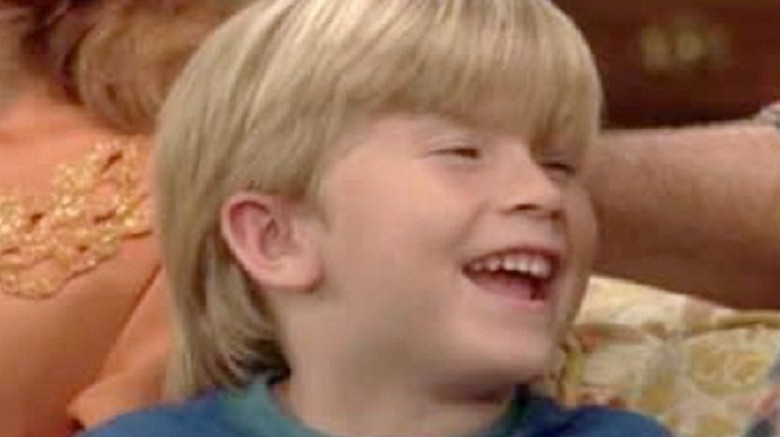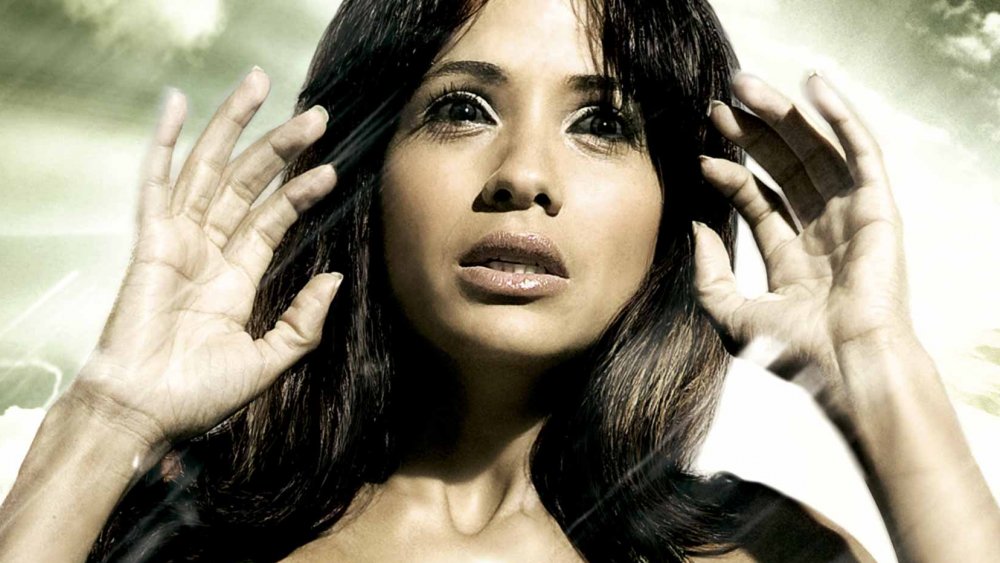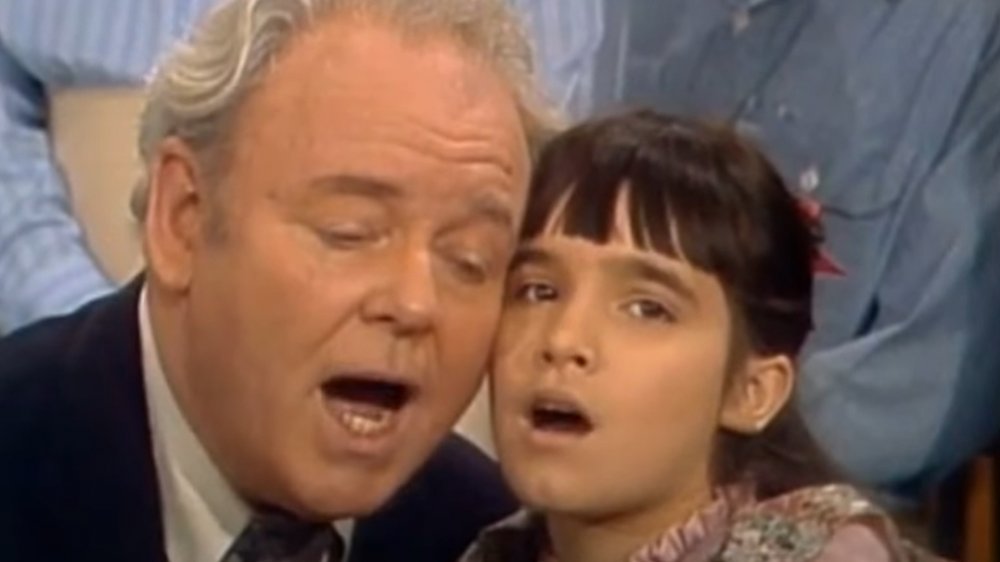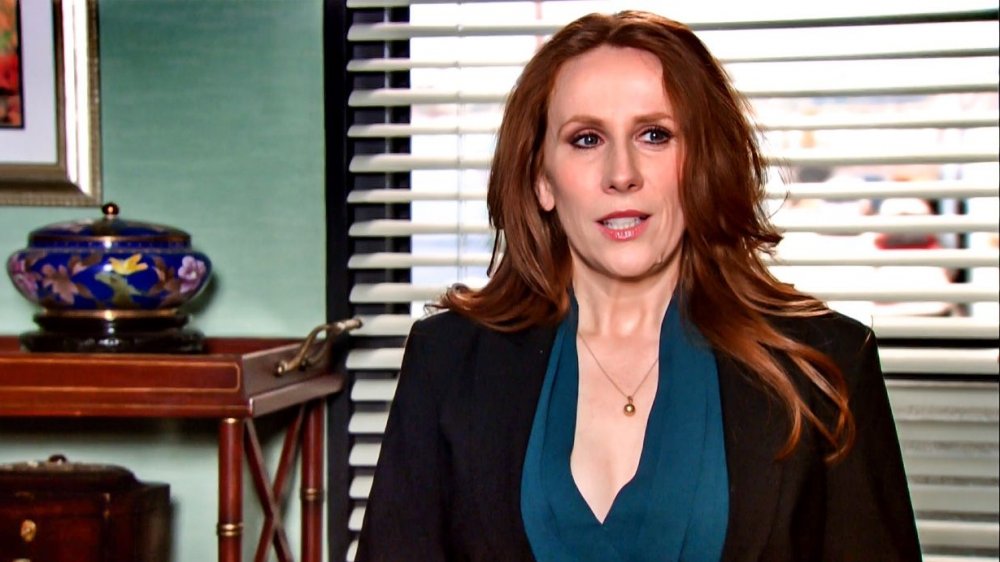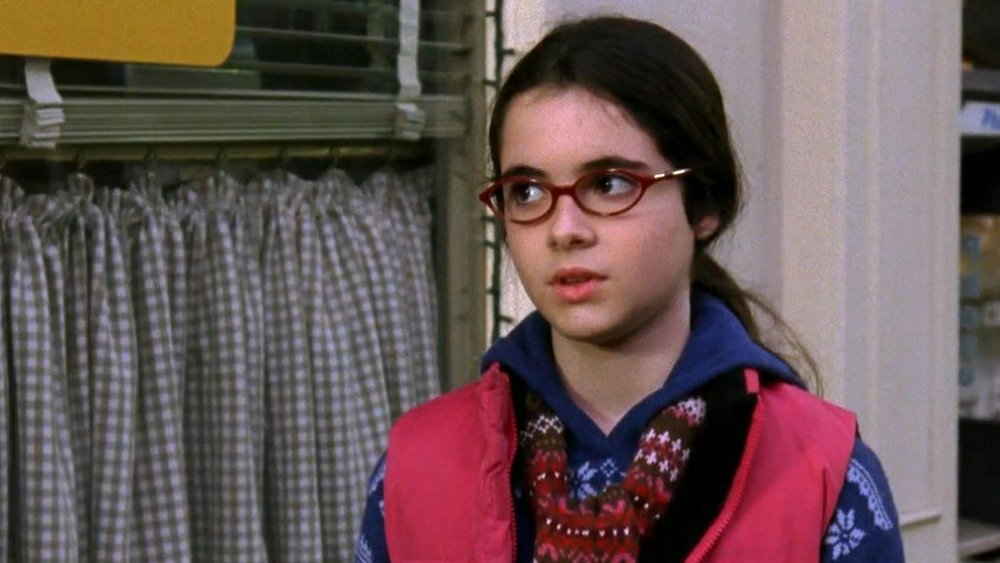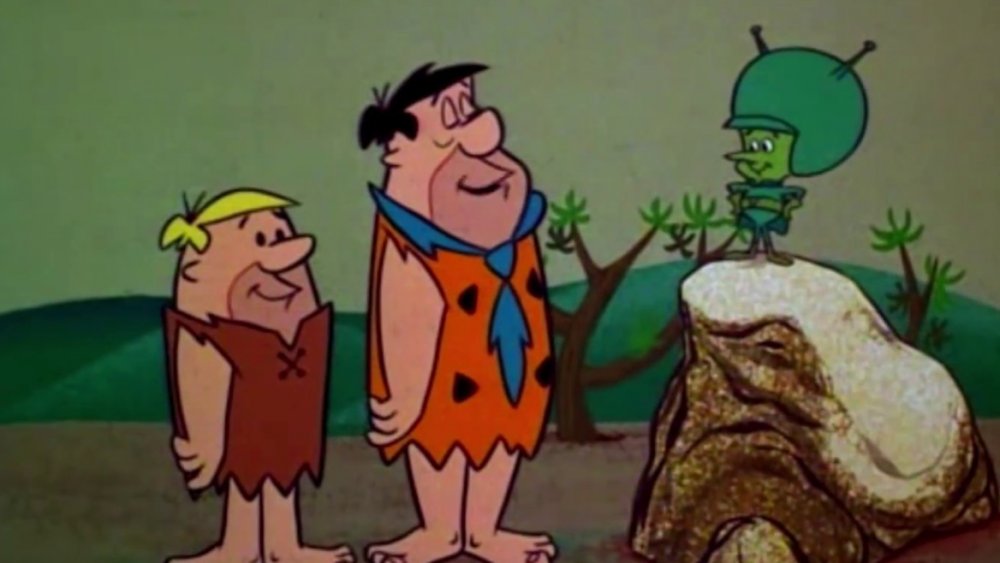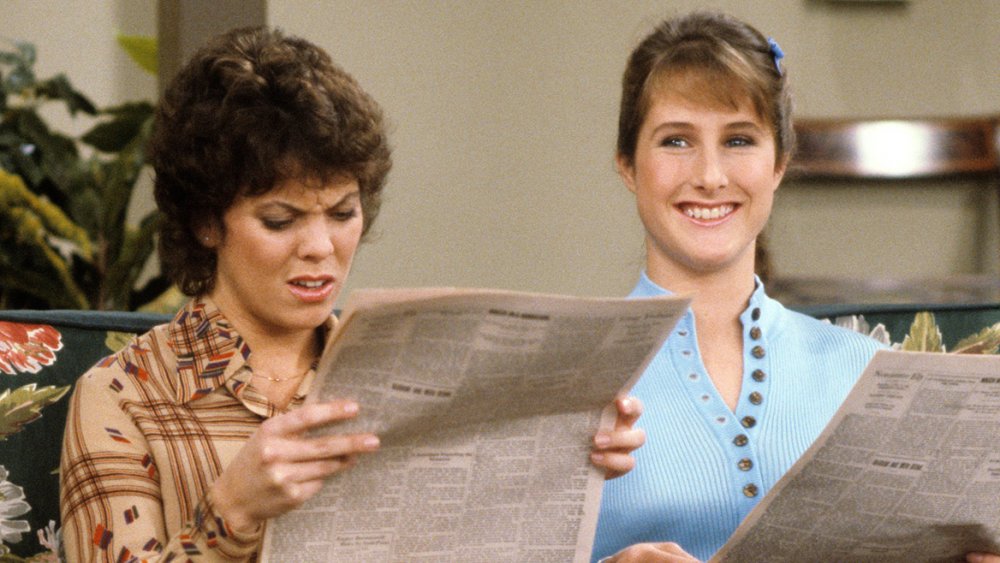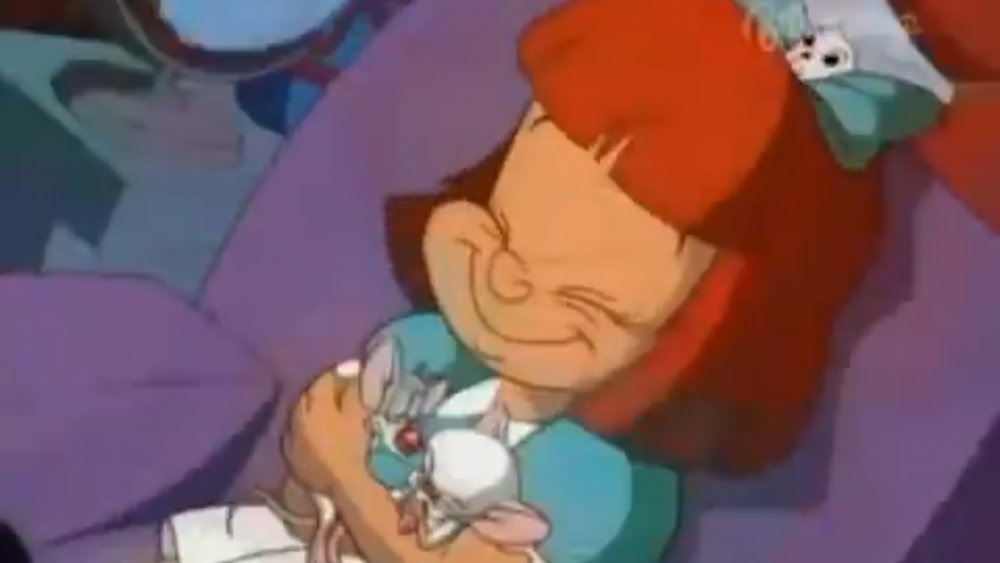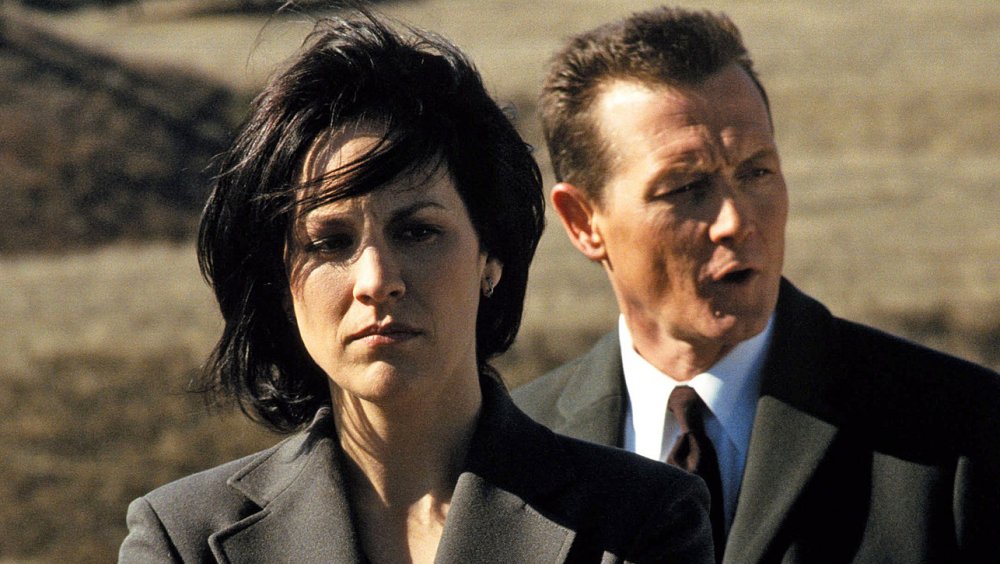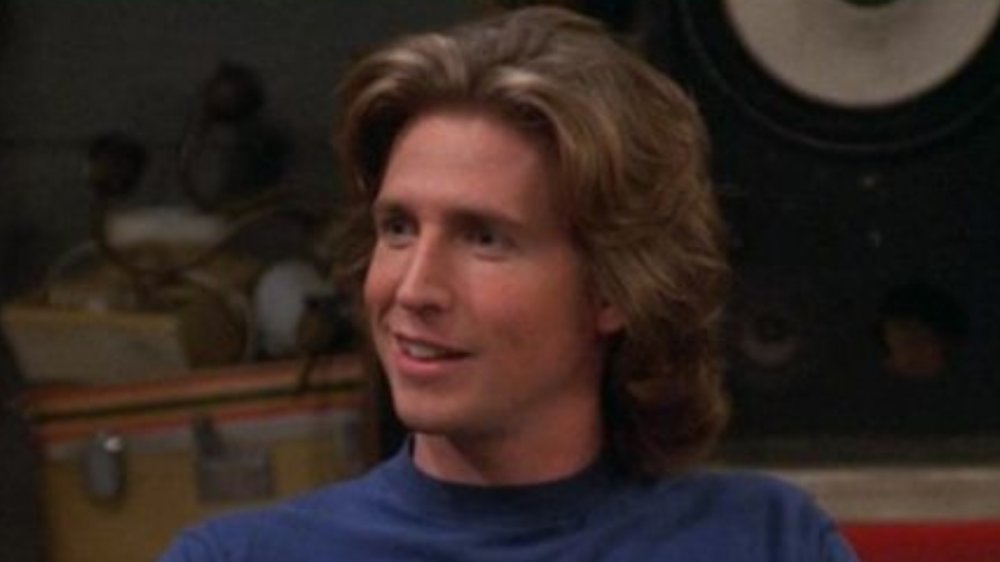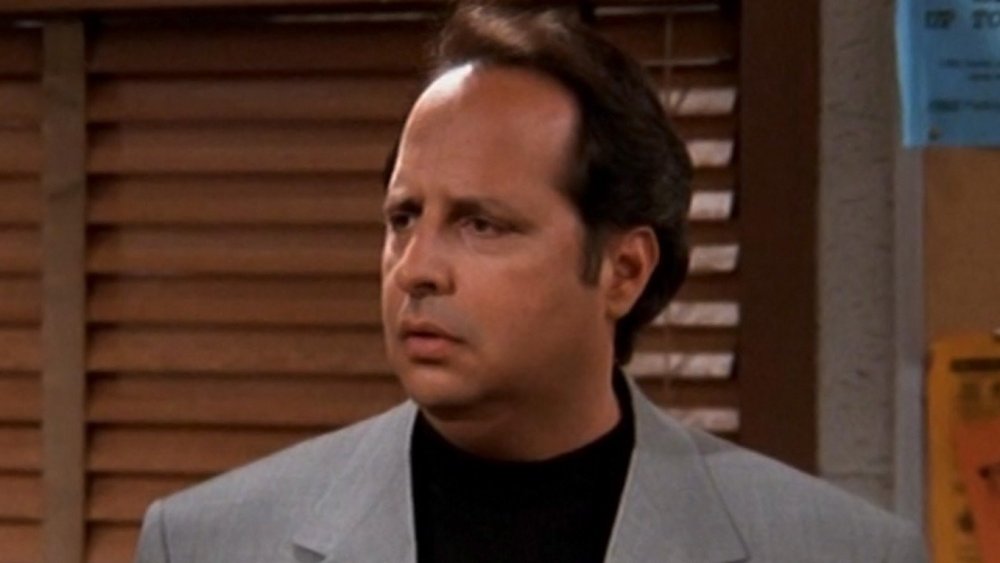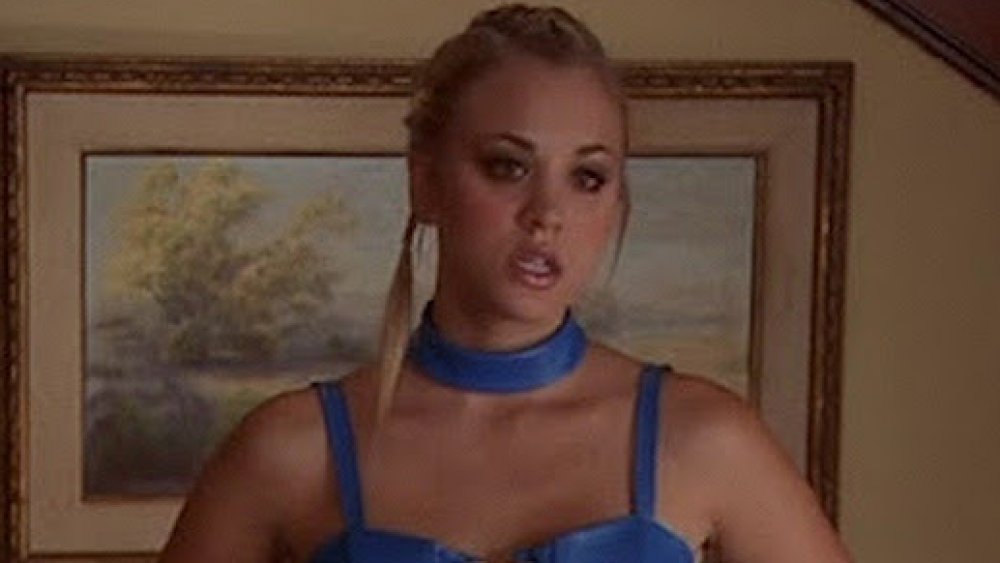Characters That Almost Single-Handedly Ruined A Television Show
Some characters throw off the balance of our favorite TV shows, sometimes nearly ruining the series' legacy. These are just a few characters that made viewers want to kick in their television sets:
Cousin Oliver -- The Brady Bunch
Introduced in the fifth season of the Brady Bunch, as all the Brady Kids were starting to age out of being precocious young kids, Cousin Oliver was reputed to be Carol's nephew, who was dumped with the family while his parents were traveling on a South American archaeology dig. We soon learned why they'd rather not be around him.
Oliver was a regular for all of five episodes — in his big debut, he believes himself to be a jinx after causing problems over and over. Sometimes, the stories write themselves. Soon, Oliver was involved in a mix-up where he and Bobby Brady fell under the mistaken notion that Alice's beloved butcher friend, Sam, was actually trading secrets to the Russians and was going to trap Mike Brady in a meat locker. Yes, before hackers, the Russians apparently employed mild-mannered meat men. When Cousin Oliver shows up on The Americans, watch out.
Oliver's tendency to cause accidents when he was around helped to change the balance of the series, becoming something of a real-life evil Tiki that cursed the family. The Brady Bunch was canceled just a few episodes later and Robbie Rist, who played Oliver, wasn't even told the series was done, only learning when he found out he wasn't going back to work.
While the overall legacy of the Bradys stands tall, Oliver was that "jump the shark" character that made eyes roll, so perhaps it's fitting that he's been involved in creating the music for the Sharknado film series.
Scrappy Doo -- Scooby Doo
For decades, Scooby Doo and his pals at Mystery Inc. have unmasked ghoulish villains who no doubt would have gotten away with their crimes had it not been for those meddling kids. In 1979, however, there was a push to cancel Scooby, due to repetitive episodes and sagging ratings. Producers Hanna-Barbera pulled out a Hail Mary pass, introducing Scooby's feisty nephew Scrappy Doo, hoping he would save the day. The series was renewed, although the diminutive pup would cause a ripple effect still felt today.
While Scooby and his best pal Shaggy were always afraid of the monsters they faced, tiny canine sparkplug Scrappy was the exact opposite. Like a frat boy with roid rage, Scrappy was always looking for a fight, screaming lines like "Lemme at 'em!" and "Puppy power!" Scrappy soon tossed the natural balance that came from Scooby and Shaggy's cowardly reactions to the mysteries upside down. While Scooby and Shaggy's antic often set up gags, and even helped to accidentally catch the bad guys, Scrappy had but one trait: he challenged everyone to a fight before being yanked away.
Despite Scrappy sucking the air out of the room, he even got equal title billing with Scooby for the following season, while Fred, Velma and Daphne — despite their years of service – were now benched. Imagine losing your job to the dog you can't housebreak.
Years later, in Scooby's first live-action feature film, Scrappy was portrayed as a disrespectful, exiled member of Mystery, Inc., who urinated on other members of the team (good times) before — spoiler – he gets revealed as the big bad. So to review: Scooby, all time classic. Scrappy? Best left in the kennel.
Wesley Crusher -- Star Trek: The Next Generation
When Star Trek: The Next Generation first hit warp speed, the idea was to continue Gene Roddenbery's vision of a united world seeking out new life and civilizations in outer space. What no one expected was the most annoying addition to the Trek mythos since Tribbles: Wil Wheaton's Wesley Crusher.
Even for the future, his story made no sense. Wesley consistently failed to make it into the Starfleet Academy, yet somehow remained on board the Enterprise. Even more mind-blowing, he regularly gave opinions, stood up to senior officers, and came up with ideas that saved the day. He was the character who somehow had the knack for all the answers and the plucky attitude to match them. What he didn't have, however, was respect. Not even getting stabbed earned this kid any street credibility.
Wesley was routinely rejected for having no logical reason to be as smart, as opinionated, or as helpful as he was. Eventually, Wesley was routinely smacked down by Captain Picard, and even his own mother. The hatred crystallized with the infamous scene where Picard snapped, "Shut up Wesley!", a moment immortalized as both Internet meme fodder and an entry in the urban dictionary.
Wesley would exit as a regular in the fourth season, allowing TNG to right itself without having to rely on someone who couldn't ride Space Mountain alone. Wheaton would later admit the criticism of the character hurt him personally, but given how he has been given his own asteroid and remains a rising power in geek culture, he's probably gotten over it.
Screech -- Saved By The Bell: The College Years
Dustin Diamond peaked in life when he portrayed Screech for NBC's Saturday morning opus Saved By The Bell. Designed to be the nerdy genius sidekick to Zack Morris, Screech pined over Lisa Turtle, had a dance named after him, and was a proud member of Bayside High. Screech was light comedy relief that worked.
In 1993, the cast graduated and made the jump to prime-time, pursuing greater education in Saved By The Bell: The College Years. With the move, most of the characters grew in some fashion. Schemer Zack Morris learned responsibility and humility before putting a ring on Kelly Kapowski's finger. Jock A.C. Slater embraced his Latino heritage. Jesse Spano went all Showgirls. Screech, however, was a different story.
Formerly goofy in a cute way, Screech's path to college apparently included a Flowers for Algernon reenactment, as his intelligence dissipated to the point where he couldn't tell the difference between frozen and cooked turkeys. His voice grew more grating, his vocabulary more simplistic — he quickly went from being the comedy sidekick that allowed others to play straight man, to someone you wanted to see shoved out a window. Even Screech's own best friends verbally knocked him to his face. Dude was useless.
Screech would live on through additional SBTB incarnations, but the damage had been permanently done. Screech was scorched Earth. Diamond's real-life issues, including time in the pokey after a stabbing, only helped to reinforce Screech's bad rep. Despite twelve years playing Screech, Diamond was the only cast member not asked to take part in a reunion sketch for Jimmy Fallon. At least the audience was saved from having to endure one last Screech.
Seven -- Married...With Children
FOX's first hit was Married...With Children, a series that's still fondly remembered today. One character is all but forgotten, however, and that may be for the best, as he was a neon symbol that the end was near.
Seven Wanker (yep, that was his real name), after being abandoned by Peggy's family, is taken in by the Bundys, opening the door for Al's misery to continue with a new mouth to feed. Still, Al declares him to be a "True Bundy" after the kid kicks someone in the groin during a party. But, with no additional back story and a character too cute for what worked on a non-traditional comedy, Married began to list sideways.
Shane Sweet, the child actor hired for the role, had little experience, and the audience wasn't reacting well. The series recognized this, quickly claiming Seven had gotten into the D'arcy family home next door, refusing to leave. Soon, he was retconned out altogether, never spoken of again beyond a few quick gags that reinforced his exile. Married went on to last another four seasons, so it turned out to be the right move.
While there has been talk of a Married spin-off being in the works, expect Seven to remain forgotten, another victim of the Bundy Curse.
Maya Herrera -- Heroes
NBC's Heroes brought forth a comic book mentality, an interconnected world and sense of adventure before such a thing became completely oversaturated in cinema and television alike. When the series climaxed in its debut season, creator Tim Kring was left with quite the problem, namely trying to top a season that introduced lovable time traveler Hiro Nakamura, power-slurping villain Sylar and the iconic phrase "Save the cheerleader, save the world."
When Heroes returned for its sophomore season, they gave it the old college try with the addition of a new character, Maya Herrera. Played by the gorgeous Dania Ramirez, Maya and her twin brother crossed the border from Mexico into the United States, seeking help in controlling her powers, as black liquid leaked from her eyes, poisoning everyone in the vicinity. Great party trick.
A great amount of time was spent developing Maya's story, which was met with apathetic viewer interest. She represented Season 2 going off the rails, with no hero to rescue it. Her character didn't connect, lost among the other slow, plodding stories of the season. Worse, Maya remained mostly independent of the series' established characters. She was seen as an intermission, not an addition to the mythos of the show. Maya showed little prowess as a hero, had repetitive scenes and ended up being hoodwinked by Sylar, who predictably kills her brother. He died. Viewers shrugged.
With a writer's strike causing the season to close with just a handful of episodes, Maya is cured, and rushed out of the series. Kring showed some tact (rare for Hollywood), admitting they had screwed up the season, specifically mentioning the newer characters, while apologizing to fans. Kring promised to get things right, so Maya was never seen again, curing Heroes of its own poison, at least until it was canceled, rebooted, and canceled again.
Stephanie Mills -- All In The Family
If you've owned a television in the last forty years or so, you're well aware of Archie Bunker, the main character of the classic comedy All In The Family. By Season 9, the grumpy Archie was looking forward to finally having some quiet time, as his daughter and son-in-law had moved to the West Coast, but before he could chill, his nine-year-old grand-niece Stephanie Mills is dropped at the Bunker doorstep. Before you can say "cast addition," Stephanie is taken in, despite Archie's predictable protests, and he and his wife begin to care for the girl as their own. Of course, Stephanie reveals herself to be Jewish, and extremely liberal in her views, making her the new lightning rod for the conservative Archie to react to.
The addition of Stephanie brought immediate criticism for allowing Archie to grow softer. Her presence also placed too much sentimentality on a series that had hung its hat on its realistic, thought-provoking conversations and plots. Now, Stephanie's emergency appendectomy, family members trying to take her back, and more commonplace sitcom fare became the norm. This lead to grumbling that marked a new, failed era for the series (it barely made it a year with Stephanie before being canceled), as it crossed over into spin-off territory.
Archie Bunker's Place, which premiered soon after All In The Family got the ax, featured a now-widowed Archie managing his bar. Since everyone else was gone, Stephanie takes on a much larger role in the series, much to the chagrin of those already tired of her. ABP barely lasted four years, meaning a little girl accomplished what Archie's meathead son-in-law never could — she successfully annoyed viewers to the point that they their hands up. Stifle!
Nellie Bertram -- The Office
When Steve Carell's Michael Scott left The Office during its seventh season, a massive void was left to be filled in the faux-reality world of Scranton, PA's Dunder Mifflin Paper Company. Brit Eleanour Donna "Nellie" Bertram soon debuted as a potential suitor to Michael's throne, despite her having no actual qualifications for any of the positions she was trying to get hired for. What's more, she had horrible social skills, was extremely lonely, depressed, and obsessed with adopting a child. The series also failed to give viewers any reason to care about why she was suddenly dominating the series. Just like real life, an idiot was now seemingly in charge, one who somehow made Michael seem like a genius. That's a tall, sad order to fill.
Played far too well as having no redeeming qualities whatsoever by Catherine Tate, Nellie was decried for a downturn in the series' quality. After all, how does one find sympathy in a shopaholic (she once bought 13 pianos at once) with massive credit card debt, who possesses a complete lack of intelligence, and has been crowbarred onto the show? She also pretty much kidnaps a baby in the series finale, taking off for Europe with it.
Nellie is every crazy ex you've ever had, all rolled into one. Like your ex, no one misses her.
April Nardini -- Gilmore Girls
There was great celebration when Gilmore Girls was revived by Netflix, until fans learned that April Nardini would also be returning. Coined the "Jar Jar Binks" of the series, April debuted in Season 6 as the previously unknown teenage daughter of Luke. When she steals and tests Luke's DNA as part of her nerdy science project and learns that he is her father, it's the beginning of the end for Luke and Lorelai's long-building love.
At first, this new information is so incomprehensible to Luke he can no longer commit to marriage. To make matters worse, he hides the reason for his decision — when Lorelai finds out, he then asks her to keep her distance from April. Things come to a head and, when he's finally ready to commit, it's too late. The star-crossed lovers of Stars Hollow find themselves done for good.
For fans of the series, this breakup was the equivalent of having their hearts ripped out, and there was only one person to blame — April. Adding to the dislike was that this gawky 12-year-old girl, whose idea of a good time was counting salt shakers in the diner, was now the focus of Luke's attention as he fought to gain custody. Viewers rejected her with a passion.
Years later, regarding that negative response to her character, actress Vanessa Marano would admit, "No, it was not great, but at the same time in a weird way, I feel like it was actually kind of great that that happened." Still, Marano admits she understood the rejection, because she herself was conflicted over the character. In fact, she admits she "sort of hated" April herself. When you hate the character you play, there is no greater proof that they were no good, for the show or the viewers. April had better hope karma doesn't come her way in Gilmore's apparently continuing revival.
The Great Gazoo -- The Flintstones
The Flintstones was already a show built around a gimmick, but that gimmick was broad and repeatable enough to sustain the show for five and a half seasons. Up until December 1965, The Flintstones was a standard '60s domestic sitcom, except that it was animated and set in the Stone Age. Never mind the presence of talking animals whining about mimicking the jobs of modern machines, or that literally everything and everyone in and around Bedrock had a name built around a ham-fisted rock or stone pun, The Flintstones was based in realism, and the relationships between a man, his wife, his daughter, and his best friends. But then halfway through season six, here came the Great Gazoo. He's a pint-size, green-skinned space alien who can float in the air and disappear at will. This sudden intrusion of goofy science fiction betrayed both the premise and realistic heart of The Flintstones.
Beyond that, the Great Gazoo was loathsome and hard to like. The reason he was on Earth was because he'd been banished from his home planet for inventing a weapon of mass destruction, and he spent his time here being a jerk to Fred, calling him a "dum-dum," getting him into sticky and dangerous situations, and then disappearing when the going got tough. The Great Gazoo's reign of awful was at least short-lived: He appeared in just 11 episodes before The Flintstones ended its run.
All the late-season additions on Happy Days
There aren't a lot of TV shows more closely associated with the '70s than Happy Days, a gentle sitcom about '50s teens. But Happy Days was a lot more than Richie Cunningham, Potsie, and Ralph Malph hanging out at Arnold's Drive-In and getting life advice from Arthur "Fonzie" Fonzarelli, the coolest human, fictional or real, to ever exist. The sitcom lasted 11 seasons and aired well into the '80s, at which point original cast members Ron Howard (Richie) and Donny Most (Ralph) had moved on. Producers stacked the show with lots of new characters, hoping to replace the departing ones and to recapture the magic of the early seasons.
Lynda Goodfriend permanently joined the cast as Lori Beth Cunningham — wife of Richie, who was no longer around, having joined the Army. Then Cathy Silvers came on board to play Jenny Piccalo, the often-spoken-of-but-never-before-seen best friend of Joanie Cunningham. Ted McGinley arrived next as Roger Phillips, a high school teacher and nephew of Marion Cunningham, followed by Linda Purl as Ashley Pfister, a love interest for Fonzie. (Confusingly, Purl had already previously acted on Happy Days as Gloria, one of Richie's girlfriends.) The new additions helped Happy Days tread water until it went off the air in 1984.
Elmyra -- Pinky and the Brain
The breakout characters of Animaniacs were the dark and transgressive Pinky and the Brain, lab rats who tried to take over the world in their free time. (Well, the Brain would. Pinky was only smart enough to go along for the ride.) The WB network had such faith in the characters that in 1995, it greenlit a prime-time spinoff, Pinky and the Brain. After poor ratings — it aired opposite juggernaut 60 Minutes – WB moved the show to Saturday mornings. There it stayed until 1998, when the network retooled the show into Pinky, Elmyra & the Brain.
Abandoning the original premise entirely, Pinky and the Brain were no longer lab rats but instead stuck in a suburban home as the reluctant playthings of a violently affectionate little girl named Elmyra, a character from Tiny Toon Adventures, canceled in 1995. The reason: WB executives wanted to ditch the world domination angle entirely and make the show more broadly comic to keep it on the air longer. "Most people didn't like that and I understand why," Rob Paulsen, the voice of Pinky, told Uproxx. "It was essentially trying to squeeze more life out of this franchise."
The show's writers lashed back at their bosses — the theme song for the new show included Brain muttering, "I deeply resent this" and the lyric, "It's what the network wants, why bother to complain?" The new format only lasted 13 episodes before cancelation.
Doggett and Reyes -- The X-Files
David Duchovny and Gillian Anderson became huge stars playing Fox Mulder and Dana Scully, FBI investigators who looked into alien abductions, paranormal encounters, and other really weird stuff that hinted at a massive government conspiracy on Fox's The X-Files. But Duchovny wasn't happy. Right before the series' seventh season in 1999, he sued Fox, claiming that it had sold rights to reruns of the show at a discount to its affiliates, thereby cheating him and the other actors out of profits they may have earned, had the episodes been sold elsewhere.
The suit was eventually settled, but Duchovny filed it right when he negotiated his contract to keep playing Mulder on The X-Files, and understandably, neither actor nor network were particularly enthusiastic to maintain their working relationship. They came to an agreement: Mulder would mysteriously disappear in season seven and appear sporadically in season eight, necessitating a new FBI agent named John Doggett (portrayed by Robert Patrick of Terminator 2) to team up with Scully. The show also hired Annabeth Gish to play another new agent, Monica Reyes, in the event that Anderson decided to bolt, too.
However, without Duchovny — or maybe the irresistible chemistry between Mulder and Scully — viewers left in droves. From a series high of a #11 rank in the Nielsen ratings in 1997-98, ratings slipped down to #67 and about half as many viewers by 2001-02, at which point The X-Files was canceled.
Randy -- That '70s Show
Portraying goofy teen Eric Foreman on That '70s Show made Topher Grace a star, and after seven seasons, he decided to bow out to pursue his burgeoning film career. Portraying dumb teen Michael Kelso made Ashton Kutcher a movie star, too, and he decided to leave as well, early in season eight. To replace the Africa-bound Eric and Chicago-bound Kelso, producers brought in one new character: Randy Pearson, an employee at Hyde's record store. Like Eric, he dates Donna and cracks wise. Like Kelso, he's a bit of a male bimbo.
Ironically, the new and sudden cast change felt in line with That '70s Show's long-form homage to '70s sitcoms — bringing in some new guy is exactly what Happy Days did decades earlier. It was all likely a fool's errand for actor Josh Meyers, a capable comic actor who honed his chops on MADtv, because it's not easy replacing the two biggest stars on a long-running show. He didn't get much time to build up chemistry with the cast before Fox pulled the plug at the end of season eight after the ratings dropped.
Max -- NewsRadio
About to head into its fifth season, the critically acclaimed but only moderately popular NBC sitcom NewsRadio had to bring in a new character — and new actor — due to an unspeakable tragedy. In May 1998, after the show's fourth season ended production, the best-known member of the cast, Phil Hartman, died in a murder-suicide. NewsRadio returned in the fall with a gut-wrenching episode explaining that Hartman's character, radio newsreader Bill McNeal, had suddenly died of a heart attack. The show's workplace, WNYX, needed a new newsreader, so NewsRadio needed a new figure, and producers brought in Hartman's friend and Saturday Night Live castmate Jon Lovitz as Max Louis, an insecure, hard-to-like sad sack of a man.
Not only did Lovitz have to come into an established sitcom, but he did it while grieving and surrounded by others also shocked and saddened by Hartman's death. "Not putting Jon down, but he had different rhythms than we did, and it wasn't the same show," cast member Stephen Root told Uproxx. "It was a sad time." Writer Joe Furey refused to blame Lovitz for the character not working. "It was just a different dynamic and it wasn't the same thing anymore." After that one season with Max, NBC canceled NewsRadio.
Billie -- Charmed
The supernatural drama Charmed smoothly survived a major upheaval when original cast member Shannen Doherty bolted from the show about the three magical Halliwell sisters. Taking her place: Rose McGowan, playing a long-lost sister who happened to possess the magical skills necessary for the "power of three" to continue on. In 2005, the aging show was heading into its eighth season when The CW issued an ultimatum: Bring in new characters to populate future seasons or set up a spinoff. And so, writers introduced Billie Jenkins, a college-age witch who approached the show's witchy main characters for magical training.
Portrayed by future The Big Bang Theory star Kaley Cuoco, Billie spent a lot of her time in the sisters' attic, studying magic books and trying to locate her demon-affiliated missing sister, who subsequently tricks Billie into turning on the Halliwells. That was a lot of setup for a character that ultimately didn't get a spinoff, which took away screen time from the characters fans had been following for nearly a decade and which would soon disappear from television, because Charmed didn't get a ninth season.

